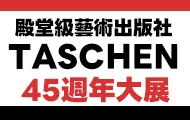Domingo García-Marzá is Professor of Ethics at the Universitat Jaume I of Castellón (Spain). He has extended his studies on Politics in Frankfurt (Germany) and on Economic Ethics at St. Gallen (Switzerland), at the Notre Dame University (USA), at Magee College of the University of Ulster (Northern Ireland), at Bologna University (Italy) and at Porto University (Portugal). His research lines include:
His areas of research cover topics of great relevance in the field of ethics and political philosophy, such as dialogic digital ethics, deliberative democracy, institutional design, business ethics, civil society and critical hermeneutics.
Among his most outstanding works are "Ethics of Justice: J. Habermas and discursive ethics" (1992), "Theory of democracy" (1993), "Business ethics: from dialogue to trust" (2004), "Integrating the ethical perspective: methods, cases, levels in business and management" (2005, in collaboration with Martin Büscher and Hans de Geer), "Business ethics: Claves para una nueva cultura empresarial" (1994, in collaboration with Adela Cortina, Jesús Conill and Agustín Domingo), "La empresa socialmente responsable: Ética y empresa" (2003) and "Razón pública y éticas aplicadas" (2003, edited together with A. Cortina).
His recent work has focused on the digital transformation of the different functional spheres of society. Especially in the design of a dialogical digital ethics to guide and critique the design, application and use of intelligent technology, in the development of an ethical infrastructure for the governance of artificial intelligence in institutions, organisations and companies, and in the critique of algorithmic democracy.
Patrici Calvo is Full Professor of Ethics at the Universitat Jaume I of Castellón (Spain), where he teaches Roboethics, Bioethics, Economic and Business Ethics and Philosophy of Science and New Technology. In addition, he has carried out research stays in some of the leading international centres, such as the University of Oxford, the University of Bologna, and the Institute of Philosophy of CSIC.
His work has focused on five main lines of research in the field of the Ethics of Artificial Intelligence and Digital Transformation and Economic and Business Ethics. Firstly, in the theoretical and practical development of a proposal for an economy that, through the design or redesign of institutions, organisations and companies, iscapable of widely deploying reciprocity to promote fairer, more responsible and happier economic growth and development. Secondly, in the design and application of cybernetic ecosystems that enable a morally valid and socially responsible digital transformation of the different functional spheres of society (health, politics, economy, etc.). Thirdly, in an applied roboethics proposal capable of guiding professional practice with a sense of justice and addressing the current ethical challenges of the design, application and use of artificially intelligent machines. Fourthly, in the theoretical and practical development of an algorithmic democracy that meets the expectations of today’s society. Finally, fifthly, in the design of an ethical governance infrastructure for artificial intelligence in the field of scientific research.
The work developed in these five main lines of research has resulted in the publication of two books as author: The Cordial Economy. Ethics, Recognition and Reciprocity (Springer, 2018) and Algorithmic democracy: A critical perspective based on deliberative democracy (Springer, 2024), one book as editor: Moral neuroeducation for a Democratic and pluralistic society (Springer, 2020), as well as multiple articles on the Ethics of Artificial Intelligence and digital transformation in scientific journals indexed in Clarivate and Scopus.



 天天爆殺
天天爆殺  今日66折
今日66折 








































































![[第二批]任天堂《主機》Nintendo Switch 2 主機 / 淺藍&淺紅手把 +《瑪利歐賽車 世界》主機組合 ⚘ Nintendo Switch ⚘ 台灣公司貨](http://im1.book.com.tw/image/getImage?i=https://www.books.com.tw/img/N00/182/38/N001823838.jpg&v=681dae90k&w=210&h=210)

![[第二批到貨]Nintendo Switch 2主機包含《瑪利歐賽車世界》盒裝版 [台灣公司貨]](http://im2.book.com.tw/image/getImage?i=https://www.books.com.tw/img/N00/181/72/N001817213.jpg&v=68072b50k&w=210&h=210)









![[第二批]任天堂《主機》Nintendo Switch 2 主機 / 淺藍&淺紅手把 ⚘ Nintendo Switch ⚘ 台灣公司貨](http://im2.book.com.tw/image/getImage?i=https://www.books.com.tw/img/N00/182/38/N001823839.jpg&v=681daf49k&w=210&h=210)
![【預購】[星巴克]夏日miffy沁爽禮盒(含運)](http://im1.book.com.tw/image/getImage?i=https://www.books.com.tw/img/N01/404/69/N014046902.jpg&v=680f1e4dk&w=210&h=210)
![[星巴克]miffy帆布手提袋](http://im1.book.com.tw/image/getImage?i=https://www.books.com.tw/img/N00/181/46/N001814678.jpg&v=6810d3f5k&w=210&h=210)
![[星巴克]miffy絎縫托特包](http://im2.book.com.tw/image/getImage?i=https://www.books.com.tw/img/N00/181/46/N001814679.jpg&v=6810d55ck&w=210&h=210)

![(4/10開)Nintendo Switch 2主機包含《瑪利歐賽車世界》盒裝版 [台灣公司貨]](http://im1.book.com.tw/image/getImage?i=https://www.books.com.tw/img/N00/181/32/N001813288.jpg&v=67fdd34ak&w=210&h=210)

![[星巴克]綜合星格脆手提行李箱](http://im2.book.com.tw/image/getImage?i=https://www.books.com.tw/img/N00/181/46/N001814697.jpg&v=6810d82ck&w=210&h=210)


![【預購】[星巴克]夏日miffy風格禮盒(含運)](http://im2.book.com.tw/image/getImage?i=https://www.books.com.tw/img/N01/404/69/N014046901.jpg&v=680f1f91k&w=210&h=210)

![[星巴克]草莓可可杏仁捲](http://im2.book.com.tw/image/getImage?i=https://www.books.com.tw/img/N00/181/47/N001814701.jpg&v=6810d8e2k&w=210&h=210)


![[星巴克]miffy綠圍裙](http://im2.book.com.tw/image/getImage?i=https://www.books.com.tw/img/N00/181/46/N001814677.jpg&v=6810d342k&w=210&h=210)
![[第二批到貨]Nintendo Switch 2主機包含《瑪利歐賽車世界》盒裝版+《Nintendo Switch 運動(內附腿部固定帶)》+螢幕鋼化膜](http://im1.book.com.tw/image/getImage?i=https://www.books.com.tw/img/N00/181/72/N001817214.jpg&v=68072c05k&w=210&h=210)

![[首批]任天堂《主機》Nintendo Switch 2 主機 / 淺藍色&淺紅色手把 +《瑪利歐賽車 世界》主機組合+派對遊戲任選一件 ⚘ Nintendo Switch ⚘ 台灣公司貨](http://im2.book.com.tw/image/getImage?i=https://www.books.com.tw/img/N00/181/53/N001815313.jpg&v=6800b515k&w=210&h=210)
![[第二批到貨]Nintendo Switch 2主機 [台灣公司貨]](http://im1.book.com.tw/image/getImage?i=https://www.books.com.tw/img/N00/181/73/N001817318.jpg&v=680733e3k&w=210&h=210)

![[星巴克]夏日印象不鏽鋼TOGO冷水杯](http://im1.book.com.tw/image/getImage?i=https://www.books.com.tw/img/N00/167/08/N001670806.jpg&v=660546f7k&w=210&h=210)




![(4/30開)[首批]任天堂《主機》Nintendo Switch 2 主機 / 淺藍色&淺紅色手把 +《瑪利歐賽車 世界》主機組合 +熱門RPG遊戲任選一件+螢幕鋼化膜一份](http://im1.book.com.tw/image/getImage?i=https://www.books.com.tw/img/N00/182/18/N001821814.jpg&v=6811cb0ck&w=210&h=210)






![(4/10開)Nintendo Switch 2主機 [台灣公司貨]](http://im2.book.com.tw/image/getImage?i=https://www.books.com.tw/img/N00/181/32/N001813289.jpg&v=67fdd34ak&w=210&h=210)

![[星巴克]NEW ERA 9FORTY帽](http://im2.book.com.tw/image/getImage?i=https://www.books.com.tw/img/N00/171/42/N001714295.jpg&v=66a85345k&w=210&h=210)

![CAEC Study Guide: Test Prep and Practice Exam Book for the Canadian Adult Education Credential [Includes Detailed Answer Explanations]](https://im1.book.com.tw/image/getImage?i=https://www.books.com.tw/img/F01/b15/25/F01b152556.jpg&v=67e0eeb6k&w=140&h=140)












 博客來
博客來 博客來
博客來 博客來
博客來 博客來
博客來 博客來
博客來